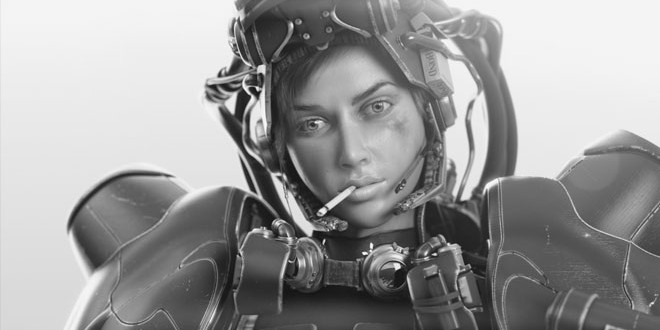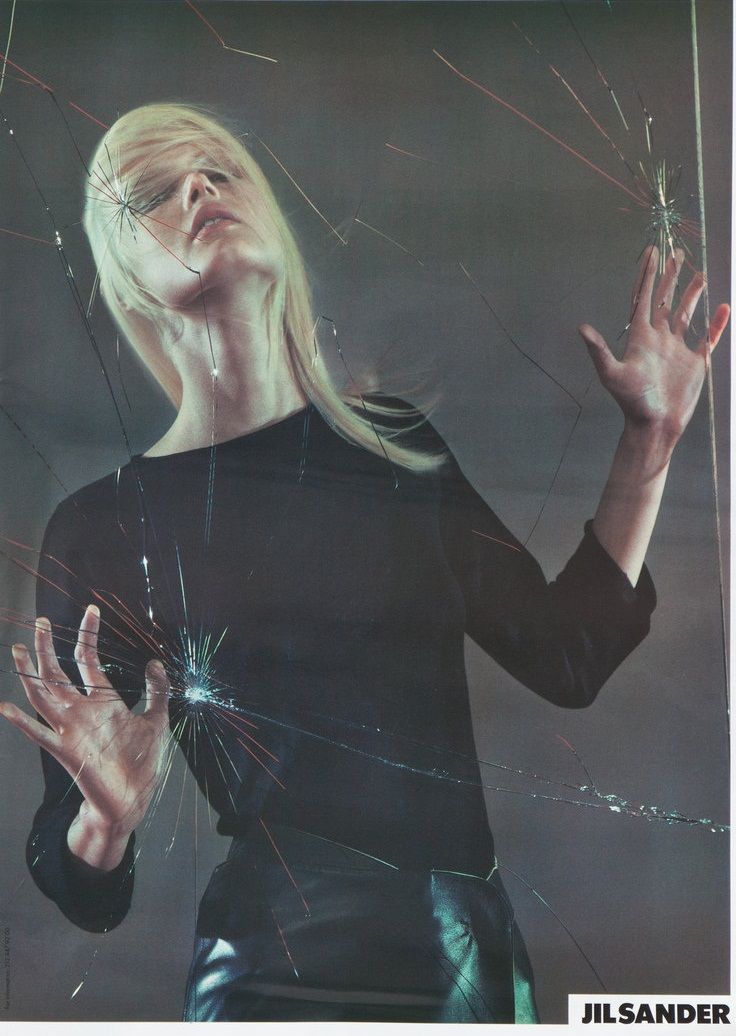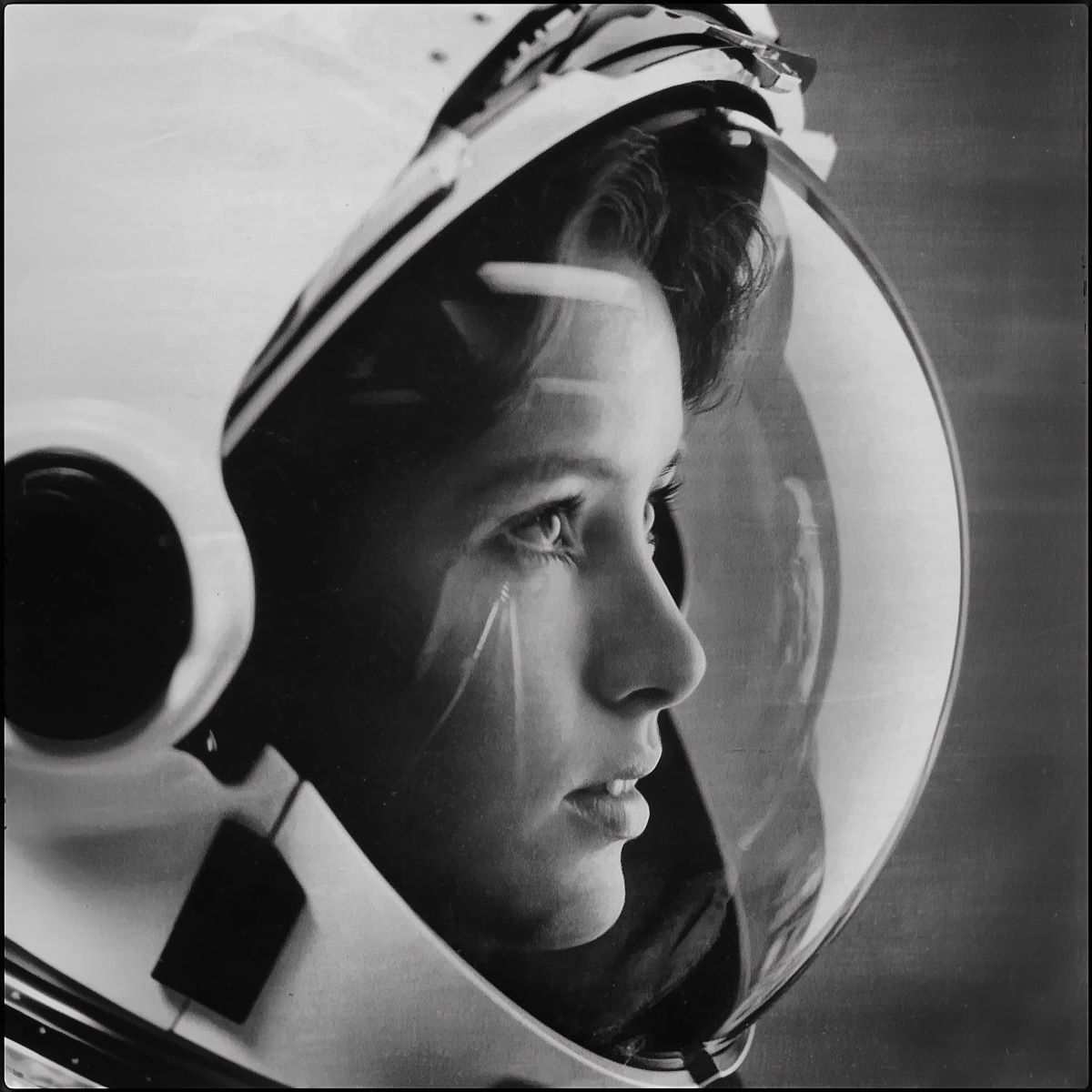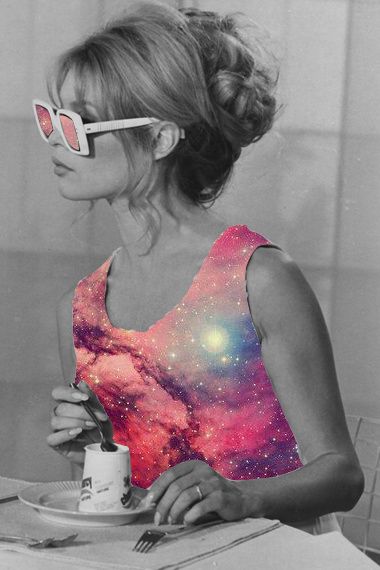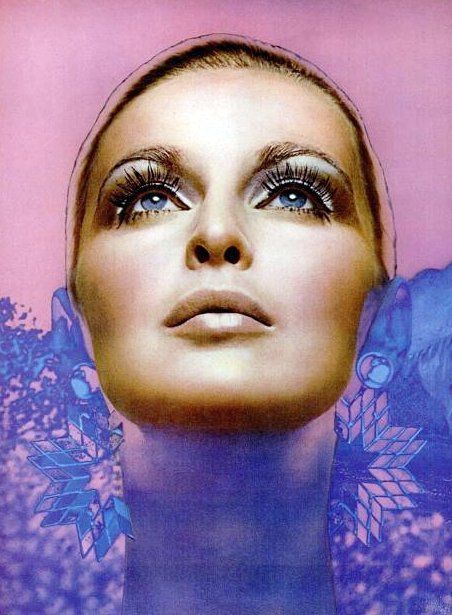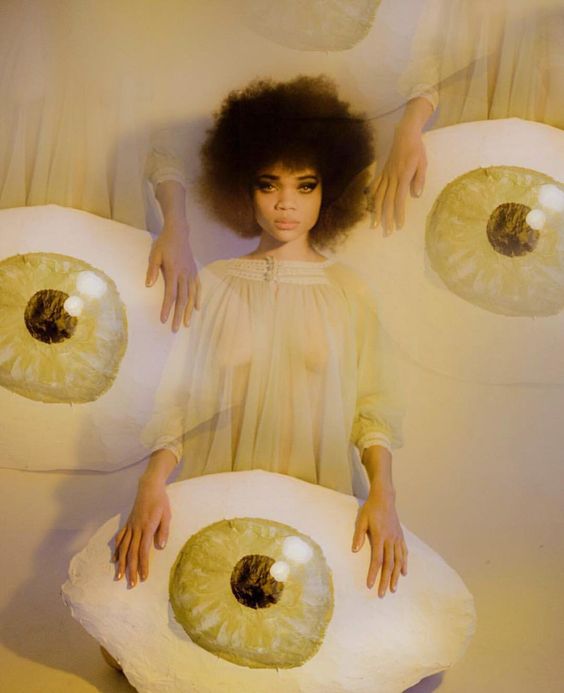 Theories in quantum mechanics and some spiritual traditions propose that consciousness can influence reality at fundamental levels. It also has a lot do with the “Uranian,” desire to rise above what are seen as lower, more destructive aspects of human nature. It’s driven by a utopian ideal of eradicating barbarism and savagery in favor of a more enlightened, peaceful society. The tension between the real and the ideal, between what is and what some believe should be. The idea is that we can affect change through the power of our minds, every thought, every tiny shift in consciousness, can contribute to the greater good. Every effort to elevate the collective consciousness, contributes to the slow, arduous ascent of humanity.
Theories in quantum mechanics and some spiritual traditions propose that consciousness can influence reality at fundamental levels. It also has a lot do with the “Uranian,” desire to rise above what are seen as lower, more destructive aspects of human nature. It’s driven by a utopian ideal of eradicating barbarism and savagery in favor of a more enlightened, peaceful society. The tension between the real and the ideal, between what is and what some believe should be. The idea is that we can affect change through the power of our minds, every thought, every tiny shift in consciousness, can contribute to the greater good. Every effort to elevate the collective consciousness, contributes to the slow, arduous ascent of humanity.
In astrology, Uranus is associated with change, innovation, and revolution. Its influence can be seen as both creative and disruptive, bringing forth technological advances and radical shifts in thinking. However, this can also have a shadow side. The drive to innovate can sometimes lead to unforeseen consequences, especially when human ingenuity tampers with natural processes. Often creators of technology feel depressed afterward and guilty about the misuse of their inventions. The original intentions behind an invention can be subverted, leading to harmful outcomes that the creators never intended. This raises questions about responsibility, foresight, and the moral obligations of innovators.
Blindness Caused by Visionary Goals
Sometime people can be “blinded by Uranian visions” when there is an intense focus on idealistic or futuristic goals, which can sometimes obscure potential negative outcomes. It’s the kind of blindness leading to consequences that are antithetical to the original visionary intent. It’s often important for activists and innovators to constantly evaluate the impact of their actions, considering both immediate and long-term effects on the environment and humanity.
The very innovations and technologies birthed from the desire to advance humanity often lead to greater challenges. Take, for instance, the marvel of nuclear energy, envisioned as a clean, nearly limitless power source but also a harbinger of destruction when harnessed for weaponry. The same can be said for the internet, a marvel of connectivity that has also birthed a landscape rife with misinformation and digital detritus. The inventors and visionaries, those who channel Uranus’s disruptive genius, often find themselves in a paradoxical predicament. They set out to uplift, to innovate, to propel humanity into a brighter future, only to watch their creations twisted and repurposed for less noble ends. It’s the classic tale of Frankenstein, the creator horrified by his own creation. However, the shadow side of progress is not a reason to halt our endeavors but a call to greater consciousness and responsibility. It’s a reminder that with great power comes great responsibility, and the true test of our Uranian visions lies in our ability to wield them wisely and ethically.
Save the Earth
Leonardo DiCaprio has been a prominent advocate for environmental issues, leveraging his celebrity status to bring attention to climate change and conservation efforts. His establishment of the Leonardo DiCaprio Foundation in 1998 aims to promote global awareness and solutions for environmental problems. His initiatives all began under transiting Uranus squares to his natal personal planets, which would have been a catalyst for his activism.
Leonardo DiCaprio, the silver screen’s darling turned eco-warrior, a shining example of a Uranian spirit taking a stand against the desecration of our dear Earth. His crusade to save the planet reflects the transformative power of Uranus, the harbinger of upheaval and enlightenment. The stars themselves conspired to awaken him to the urgent need for change, igniting a fire within him to combat the environmental devastation wreaked by human hands. Leonardo’s journey, driven by these Uranian influences, mirrors the struggle of many who feel the weight of our collective impact on the planet. You can almost picture him back in the late 90s, a modern-day Prometheus, wielding the torch of awareness and striving to illuminate the dark corners of our ecological neglect. It’s a noble endeavor, fraught with the pain of seeing the Earth suffer, like watching a beloved garden wither under an uncaring sun.
Prometheus
In Greek mythology, Prometheus is a titan who defies the gods by stealing fire from Olympus and giving it to humanity, an act that symbolizes enlightenment and the ignition of progress. This myth resonates deeply with the astrological symbolism of Uranus, which is associated with enlightenment, breakthroughs, and the radical shift from old ways to new possibilities. Prometheus’s gift of fire can be linked to the sudden sparks of insight and innovation that Uranus is said to govern.
The drive towards an idealized vision of perfection is another hallmark of Uranian influence. People influenced by this planetary energy often feel a compelling urge to improve, transform, and innovate, motivated by a vision of what might be possible. It reflects the broader human impulse to seek out and realize untapped potential, pushing the boundaries of what is known and expanding into new realms of thought and action. On an individual level, Uranus might inspire a person to break free from their limitations, seek freedom, or pursue a path that is uniquely their own.
While the positive aspects of Uranus can lead to significant advancements and personal growth, the flip side can involve disruption and instability. The rapid changes and insights that Uranus brings can sometimes be unsettling, leading to periods of turmoil as old structures are dismantled to make way for the new. This can create a tension between the desire for progress and the chaos that sometimes accompanies it.
Prometheus is the quintessential Uranian figure! Stealer of fire, bestower of divine illumination, he dared to defy the gods and gifted humanity with the spark of enlightenment. His story is a timeless allegory of the Uranian spirit, symbolizing the transformative power of knowledge, foresight, and the unyielding quest for human freedom. Prometheus, with his gift of foresight, saw the latent potential within human consciousness. He envisioned a world where we could rise above our primal instincts, transcend our limitations, and fulfill the grand potential we were given. It’s a vision that resonates deeply with the Uranian ethos, which celebrates sudden enlightenment, intellectual awakening, and the relentless pursuit of a better, freer world. Under Uranus’s influence, we are often struck by moments of sudden clarity, those epiphanies that shatter our old perceptions and illuminate new paths forward. It’s the flash of insight that ignites revolutions, both within our minds and in the broader sweep of history. Uranus compels us to look beyond the status quo, to see the untapped potential in ourselves and in the world around us, and to strive for transformation and liberation.
In our modern age, the internet stands as a powerful Uranian tool, a digital Prometheus that has brought the fire of knowledge to the masses. It has the potential to reach minds far and wide, to spread ideas, inspire change, and foster connections across the globe. Yet, this technological marvel also brings with it the potential for chaos, for anarchy rather than enlightenment. The same medium that can elevate can also devolve, depending on how it is used and the intentions behind its use. This is the shadow side of Uranus, where the drive for innovation and transformation can lead to unintended consequences. The very tools and technologies that can liberate us can also entangle us in new forms of disruption and discord.
It’s a a bit of balance, the dance between progress and preservation, between visionary change and the stability of order. The Uranian vision of perfection is one of continual improvement, a restless drive to better, transform, and free ourselves from the constraints that limit our potential. Under Uranus’s influence, we see possibilities where once there were none, and we are driven to bring these possibilities into reality. It’s a powerful, inspiring force, but one that requires discernment and wisdom to wield effectively.
The Areas of Consciousness and Self-Awareness
In astrology, Uranus encourages looking beyond the mundane details of everyday life to focus on larger, transformative goals. This makes it a symbol of hope and potential for those seeking to understand their place in the universe and to make meaningful changes in their lives. Awareness can lead to a deeper understanding of oneself and, ideally, a more fulfilling and happier life. The practice of astrology is more than just a way to predict future events; it’s a transformative art that can change how people view themselves and their interactions with others. It offers a blend of mysticism and personal psychology, providing insights that some find life-altering.
Astrology itself, under Uranus’s dominion, is a tool for transformation. It’s the roadmap to the soul, revealing the currents of energy that flow through our lives. Uranus connecting the dots to reveal the bigger picture. This vision of a more enlightened, harmonious future, where people can understand and work with their unique energetic patterns, is a beautiful Uranian dream. It’s about elevating consciousness, about helping people break free from the shackles of ignorance and fear, and stepping into a more empowered, aware state of being. Think of it as upgrading from a standard-definition view of life to a high-definition, technicolor one. By raising awareness and providing tools for self-discovery and growth, it creates a ripple effect, where each person’s journey towards greater consciousness contributes to the collective evolution of humanity.
Many people are drawn to astrology as a tool for self-discovery. By analyzing their birth charts—which map the positions of the planets at their time of birth—individuals can gain insights into their personality traits, strengths, weaknesses, and potential life paths. While astrology cannot predict specific events with certainty, it can offer insights into the types of energies or psychological states a person might experience during certain periods. This is primarily done through the study of transits and progressions—how the current or future positions of the planets interact with the positions of the planets at one’s birth. These insights can help individuals prepare for or understand the undercurrents of their experiences, though they leave room for free will and personal action.
It is not about deterministically forecasting exact events but rather about understanding the thematic influences of planetary movements. We also have to give respect the complexity of human lives and the multitude of possible outcomes based on one’s decisions and external factors. The immediate recognition of a planetary transit’s influence is a common report among those who follow astrology. For instance, the presence of a Uranus transit might be felt as a sudden urge for change or a disruptive event that urges new thinking. Uranian energy is used as a force for elevating consciousness and reduces the sense of being fated to certain outcomes. Uranus, with its association with innovation, freedom, and breaking from tradition, encourages individuals to step outside predetermined paths and think about the possibility of creating their own futures.
Who can resist the temptation to delve into the mysteries of their inner self, to unravel the threads of their psyche, and to gaze into the mirror that astrology offers? Progressions and transits serve as markers of time and transformation in our lives. They allow us to peek into the unfolding path of our journey, to sense the energies that swirl around us and influence our experiences. It’s a bit like reading the weather forecast—you can’t predict every raindrop or sunbeam, but you can get a sense of the overarching climate and prepare accordingly. Astrology, particularly predictive astrology, does have its limits. It’s not a crystal ball offering precise predictions of future events but it is a tool for understanding the psychological and energetic climate of a given moment. It offers a framework within which we can explore our feelings, our motivations, and the subtle currents that shape our lives. When a significant transit occurs, like a Uranian bolt from the blue, you can almost feel the shift in the air, the tingling of impending change. Under Uranus’s influence, we are encouraged to break free from the chains of fate, to recognize our potential for transformation, and to seize the reins of our own destiny. This is where astrology’s true power lies—not in predicting fixed outcomes, but in illuminating possibilities and empowering us to make conscious choices. We become less victims of fate and more co-creators of our own stories, using the insights gleaned from the stars to chart a course that aligns with our highest aspirations.
A New Consciousness: Shattering Lives!
Uranus is the harbinger of progress, the great awakener of the zodiac! It’s no wonder many are drawn to its electric aura, its promise of thrilling discoveries and expanded consciousness. Yet, as with all powerful forces, there lies a shadow side, a darker undercurrent that can be challenging to predict. It disrupts the status quo, shattering our complacencies and compels us to confront the deeper truths of our existence. This whole process, while exhilarating, can also be profoundly unsettling. For in the search for greater consciousness, we are often forced to look within, to internalize projections, and to take responsibility for our own shadows. Using astrology in the Uranian sense, is like being handed a mirror that reflects not just our light but also our darkest corners.
It’s much easier to blame external circumstances or other people for our struggles and discontents than to face the uncomfortable truths about ourselves. The Uranian call to self-awareness demands a level of honesty and courage that can be illuminating. Not everyone is prepared to handle the intensity of this revelation, the stark clarity with which Uranus illuminates our inner landscapes.
Liz Greene aptly points out that this need for greater consciousness, this Uranian imperative, can trigger a defensive reaction. When we are confronted with our own projections, when the finger-pointing and blame-shifting no longer suffice, we must confront our own vulnerabilities and flaws. It can be a deeply unsettling process, one that evokes anger, denial, and even despair. It’s the psychological equivalent of a storm, uprooting our carefully constructed facades and laying bare the raw, unvarnished truth.
For those who have dedicated themselves to the study of astrology, this journey is both a blessing and a challenge. The deeper we delve into the universal patterns and influences, the more we are called to apply this wisdom to our own lives. We cannot simply analyze the stars and planets in abstraction; we must integrate their lessons into our own personal growth. Yet, it is precisely this struggle that makes the journey worthwhile.
“I think consciousness, which is, in theory, such a desirable thing to the psychologically minded, often creates greater suffering than was there before, although it is of a different kind. Many counsellors and therapists discover this only after they have been on their own therapy for a long time and have worked with clients for a few years. Many astrologers discover it as well, after sufficient experience. At first, we believe we are going to enlighten people. We have a wonderful vision of an orderly cosmos and a deep faith in human evolution, and if we give this solar fire to people, we assume their lives will be better for it. Many people train as therapists with the reformers vision in mind. One assumes one can heal anything, cure anything, change anything…When any individual becomes more conscious, he or she loses the luxury of blaming everyone else. It is extremely painful because there isn’t any convenient outer tip into which one can dump one’s psychic rubbish. Consciousness means internalizing projections, and that means containing apparently insoluble inner conflicts. The degree of suffering which this causes can be very great, and some people feel it’s a poor exchange.”
Just as Prometheus endured great suffering to bring the fire of the gods to humanity, those of us who delve into the cosmic realms often face our own trials and tribulations. Engaging with astrology, we become acutely aware of the influences that shape our lives. This knowledge, while empowering, also carries a heavy burden. We find ourselves attuned to the rhythms of the cosmos, anticipating the ebb and flow of planetary transits and their potential impacts. On the one hand, we are granted foresight and deeper understanding, but on the other, we are saddled with the anxiety and anticipation that comes with it. Ignorance, as they say, can indeed be bliss.
How many sleepless nights are spent pondering the implications of an impending Uranus square or a Saturn return? The very tools designed to enlighten us can also become sources of stress and worry. Moreover, astrology, like psychology, demands a level of self-responsibility that many find challenging. The stars do not merely dictate our fate—they reflect the patterns within us, patterns we must acknowledge and work through. When we see these projections in our charts, it’s a stark reminder that the work of transformation starts within. This realization can be daunting. It’s much easier to externalize our struggles, to blame our circumstances, than to confront the deep-seated issues within ourselves.
Yet, this is where the true power of astrology lies. It offers us a mirror, reflecting both our light and our shadows, urging us to take responsibility for our growth and evolution. The path of the astrologer is not for the faint of heart. It requires courage, and a willingness to face uncomfortable truths. It’s a journey through darkness, but also towards greater self-awareness and enlightenment. Often there’s a backlash against the astrologer, the bearer of these insights. People can become frustrated or disillusioned when their lives don’t improve as expected, or when they are confronted with challenging transits. The messenger often becomes a convenient target for their frustrations.
However, through this Promethean suffering, we eventually find balance. We swing back to a more positive, realistic understanding of astrology’s role in our lives. We learn to use it as a tool for empowerment, not as a source of fear or determinism. We recognize that while the stars may influence us, they do not control us. Astrology, at its best, offers us the gift of awareness. It can transform our lives, providing a framework for understanding ourselves and the world around us. But it also calls us to a higher level of personal responsibility and inner work.
Astrologers, like professionals in any field that deals with personal insight and advice, face significant ethical responsibilities. Sharing information that could potentially cause anxiety or fear is a major concern. It can lead to feelings of guilt or doubt among astrologers, especially when interpreting more challenging aspects of a chart. The responsibility to convey information in a way that is both honest and compassionate is a tough one to balance at times.
Astrology has evolved significantly over the centuries. Traditional astrology often included very direct, sometimes fatalistic interpretations that reflected the harsh realities of earlier times. Today, the practice is often more psychologically oriented, focusing not just on predictions but on personal growth and self-understanding. This shift reflects broader changes in attitudes towards fate, agency, and the nature of the self. What was considered helpful or appropriate then might not be viewed the same way now. However, future astrologers might find our current emphasis on psychology, positivity, or new-age thinking to be dated or lacking in some respects.
Astrologers bear a unique burden. We interpret astrological patterns and offer guidance, all the while knowing that our words carry weight and can influence the minds and emotions of those who seek our counsel. It’s a responsibility that can invoke guilt, especially when our insights, even when well-intentioned, stir anxiety or fear. We strive to illuminate, not to cast shadows. Reflecting on the astrologers of yesteryears, it’s clear how far we’ve come from the doom-laden interpretations of the past. There was a time when astrology was steeped in fatalism, when an ominous transit or progression could be seen as a harbinger of inevitable misfortune. The astrologer of those times, armed with what they believed to be essential truths, shared their insights with conviction, believing they were providing valuable warnings or preparations. Yet, today’s astrology has shifted. We’ve taken a psychologically informed approach. We understand that while the stars may guide, they do not dictate, and that within every challenging transit lies the potential for growth and transformation. And future astrologers will likely look back at our current practices with their own lenses, shaped by the evolving paradigms of their time. They may find our interpretations overly optimistic or excessively influenced by contemporary psychological and new-age thought. Perhaps seeing areas where we could have delved deeper or taken different perspectives. Just as we learn from the past, future generations will learn from us. The key lies in our intent and our continuous striving for greater understanding. We must remember that astrology, at its heart, is a dialogue between the cosmos and the individual.
It’s true that the astrology readings of the past often carried a heavy, doom-laden tone, foretelling misfortune with a gravity that could weigh down the heart. Yet, consider modern interpretations, and when we see Neptune in the 4th house, we might speak of nebulousness at home, a sense of uncertainty or confusion within the domestic sphere. Similarly, Neptune in the 2nd house today might lead us to caution someone about potential deception in financial matters, echoing the ancient warnings of monetary misfortune. Then there’s Pluto, the dark lord of transformation and power. Pluto in the 7th house could suggest a partner with controlling tendencies, a relationship dynamic fraught with intensity and power struggles. We might paint this picture with even darker hues, warning of a spouse who is domineering or even dangerous.
Yet, as astrologers, we are also products of our own eras, our readings colored by the climates we inhabit. Each generation of astrologers brings its own perspectives, influenced by new understandings of psychology, spirituality, and human nature. Today’s astrologers strive to balance honesty with empathy, aiming to empower rather than to instill fear. We recognize the potential for both challenge and growth inherent in every astrological configuration. While it’s important to acknowledge the difficulties a transit or placement might bring, it’s equally crucial to highlight the opportunities for transformation and personal development.
Astrology, like any discipline, is not static. It grows and changes, reflecting the evolving consciousness of humanity. As astrologers, we are tasked with interpreting the stars through the lens of our time, bringing forth insights that resonate with the lived experiences of those we guide. It’s difficult to entirely separate our readings from our own beliefs and biases. Our interpretations are inevitably influenced by our understanding of life, and shaped by our personal experiences. This is why it’s vital for astrologers to continuously seek knowledge, to remain open to different viewpoints, and to engage in self-reflection. In this way, astrology becomes not just a means of foretelling potential difficulties but a guide for living more consciously and intentionally.
Here’s an old astrology reading I found that might be intriguing to read through the lens of today’s consciousness. The language of the ancients—straightforward, unfiltered, and at times, a bit alarming. Describing certain periods as “evil times” does have a certain dramatic flair, doesn’t it? Nowadays, we’ve softened our astrological lexicon, opting for terms like “challenging,” “transformative,” or even “growth periods.” It’s all about framing. Rather than evil, consider these periods as “intense learning experiences.” You’re learning, growing, and evolving, even if it feels like you’re being dragged kicking and screaming into enlightenment.
“Mrs. Maud S.’s daughter was born July 2nd, 1884, at 8: 35 A.M., N. Y. According to the time given above this young girl was born under the Sun in the sign Cancer, with Leo on the ascendant, Jupiter, Sun and Venus rising, and Saturn, Mercury and Neptune in the mid-heaven. When she comes to her full growth she will be near the medium height, rather slender when young, but will gradually become quite full built, and will at the age of 40 weigh 180 pounds ; rather light complexion, light brown or almost flaxen hair (her hair will have a slight yellowish tinge when a child), slightly full face, round forehead, full, expressive eyes, rather prominent nose, have a straight, proud walk, fond of dress and decoration, and always have a very neat, tidy appearance. The rules of Astrology say that she will be harmless, cheerful, pleasant, but at times indolent and not fond of employment or hard work, but inclined to dancing and recreation, and very fond of the company of the opposite sex. On the whole she has a rather fortunate horoscope, and will never come to very low circumstances, or poverty, but will often be annoyed by treachery from secret enemies or near neighbors. She will generally enjoy fair health, and there is every probability of her living to be quite old. She will at times be troubled with some weakness of the back, kidneys and bladder, and palpitation of the heart, and danger of indigestion and tightness of the chest. She will have to avoid strong tea, coffee and stimulants and high-seasoned food ; if not, she will suffer from nervousness, indigestion or weakness of the stomach and liver. She is a person of very good intellect, will learn rapidly and be fond of the fine arts; also will excel in mathematics or anything that requires deep thought; also be fond of Astrology, spiritualism, mesmerism, etc. She will have a fluent tongue and would succeed either as a public speaker or writer for newspapers or magazines. She will find it very difficult to retain money; it will easily get out of her fingers, and she will be unfortunate in regard to lending or assisting friends with money. She will marry to rather good advantage. She will keep company with a gentleman for a length of time who will be near or above the medium height, well built, rather light complexion, oval face, high forehead, hair receding from the temples, rather prominent nose and full expressive eyes; great danger of disgrace or unhappiness caused by that gentleman, and it is impossible for her to marry him. Her husband will be above the medium height, rather slenderly built, will never become stout, thin face, high forehead, sharp nose, quick, penetrating eyes, dark complexion, with dark brown or black hair, will have a particularly straight or proud walk, be fond of dress and decoration, but likely to soon become jealous and cause her much unhappiness on that account, yet it is not probable they will separate, but he will not be long lived. She marries a second time and is much more fortunate. The husband will be near the medium height, slightly full built, rather pale complexion, roundish face and forehead, soft brown hair, rather sharp nose and soft expressive eyes, very gentle in his manners, and agreeable, fond of music and the fine arts. She will only have a small family of children, not more than three or four, chiefly boys, and they will often have poor health and not be much good to her. She has already had several evil aspects to pass by, which caused her health to suffer; one of those times was when she was a little over one year old, likely to have had a fever. Another at two years of age, but that was more likely to have been an accident or another fever, or some derangement of the stomach and intestines. Evil again at four, seven and eight. Had an evil time in November and December, ’92, and during February, March, May, June, July, August and September, ’93-very likely sickness for herself or unhappiness in her family. Another marked evil time commenced in January, ’95, and continued to April. Unfortunate again in October and November, ’95. Then more fortunate to January ’98, then marked evil to July ’98; likely to have severe sicknesses or meet with some accident. Evil again in October, November and December, ’98; a particularly evil time from February to the end of December, ’99; then fortunate to June, 1900; then evil to September 1st, 1900. May possibly marry, but doubtful at 21, but more likely to have the unhappiness connected with the light complexioned, full built gentleman at that time and not marry until she is near or a little over 23.

